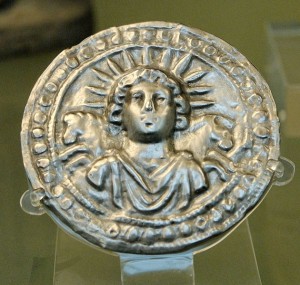I first noticed the Christmas decorations in department stores before Halloween. Soon after, I began hearing the Christmas mood music. Then some radio stations began doing their “all Christmas” schedule. The TV specials and Hollywood’s annual Christmas releases began to appear. By now we’re in full holiday mode. Parties, food, presents… and the new sign of the Christmas season – the Christmas propaganda war, aka, the war on Christmas.

With the new secularism gaining ground in our culture, it’s becoming more common for public displays of the Christ story to be attacked as state sponsored religion. In fact, the war on Christmas is really a war against Christianity in the public square.

As we continue to move from a so-called Christian culture to a more secular culture, this type of conflict will continue in earnest. But take heart, there’s nothing new here.

By the early fourth century, December 25 was being celebrated as the birthday of Jesus Christ. Now, almost everyone knows that Jesus was not born in December. The most likely date for the birth of Christ is sometime in March or April in about 5 BC. If Jesus was not born on December 25, then why all the fuss? It was a propaganda war. In the ancient world the month of December was the time for popular pagan “feast of Saturnalia” which was celebrated by parties, gift-giving, and a festival of lights. By the fourth century Saturnalia was associated with Sol Invictus, the Roman sun god.
As the Christian faith began to expand throughout the Roman Empire, the pagan and Christian cultures collided. In an effort to evangelize the pagan culture, Christians began to utilize pagan symbols and festivals to tell the story of Jesus. After all, the Christian Scriptures used many of the same symbols to refer to Christ.
But for you who fear My name, the sun of righteousness will rise with healing in its wings; and you will go forth and skip about like calves from the stall (Malachi 4:2).
Then Jesus again spoke to them, saying, “I am the Light of the world; he who follows Me will not walk in the darkness, but will have the Light of life” (John 8:12).
Eventually, the story of Christ became the narrative that informed and shaped the world.
We are witnessing a revival of an ancient propaganda war, the consequences of which are much greater than a holiday greeting (Happy Holidays or Merry Christmas?). The continuing secularization of culture will result in the suppression of religious faith. We must be properly engaged in the Christmas propaganda war for the sake of the propagation of the Faith. So what can we do?
First, we must be engaged in the public square working for the freedom of religious expression. This means that we must seek to protect the religious expression of all faiths to ensure the liberty of our own. As we engage the public square, we must be diligent and civil. Yes, we can be passionate. But, we must not be angry or hateful.
Second, we must seek to preserve the tradition of Advent and Christmas in our churches. Pastors and church leaders must educate believers about our Christmas faith and traditions. In all earnestness, we must use our resources to publicly celebrate the season with proper decorations, nativity scenes, plays and concerts, and worship. Too many pastors are not aware of the very rich tradition of Advent worship or of the history and theology of Christmas. The Advent and Christmas season offers an excellent opportunity for Christians to propagate the Christmas message: “The Word became flesh and dwelt among us” (John 1:14).
Finally, we must faithfully observe Advent and Christmas in our homes. This means we may have to sanctify some of our family traditions. Maybe its time to get rid of Rudolph, Frosty, and even the Santa Claus myth. Instead, we must focus on the angelic messengers, the Virgin, the shepherds, the Incarnation, the slaughtered babes of Bethlehem, and St. Nicholas of Myra.
In our public discourse, in our corporate worship, and in our family devotion let us bold propagate the message that CHRISTmas is about Christ… God with us!
Selected Resources for Propagating the Faith
The Origins of Christmas by Joseph Kelly (Liturgical Press, 2004).
Christmas: Festival of Incarnation by Donald Heinz (Augsburg Fortress, 2010).
Celebrate Advent: Worship and Learning Resources by John Hendrix (Smyth & Helwys Publishing, 1999).
